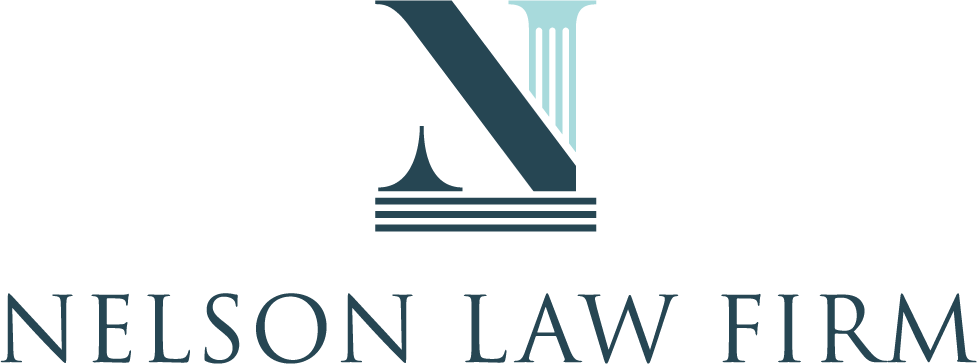
After forming your business organization, understanding the tax implications of each decision allows you to keep more of your hard-earned profits. Careful planning and strategic choices can lower your annual tax bill and support long-term growth.
Whether you’re a sole proprietor or a corporation, knowing which strategies apply to your situation makes all the difference. From selecting the right entity to timing your expenses, each step builds toward a more tax-efficient operation.
At the Nelson Law Firm, our tax law attorneys assist business owners in Beaufort County, South Carolina, and surrounding areas in reducing their tax burdens legally and effectively. Our experienced attorneys deliver exceptional legal services with care and attention to detail.
Below are key approaches to minimize your tax liabilities as a South Carolina business owner:
Choosing the Right Business Structure
Your choice of entity determines how you’re taxed and what liabilities you face. Sole proprietorships and partnerships report business income on personal returns, exposing you to self-employment taxes. Corporations—and S corporations—offer different tax treatments that can reduce overall rates.
Switching from one structure to another requires careful analysis of income levels, ownership goals, and state regulations. We can assist you in filing the necessary formations or amendments in compliance with South Carolina laws. That setup lays the foundation for every other tax-minimization tactic.
Maximizing Deductions and Credits
Identifying all eligible deductions and credits reduces taxable income and direct tax liability. Standard deductions include business-related travel, equipment purchases, and home office expenses, while credits may offset specific activities, such as research and hiring veterans. Keeping meticulous records allows you to claim every allowance you’re entitled to:
Startup costs: Expenses incurred before opening, such as legal fees and market research, can be amortized or deducted.
Qualified business income deduction: Pass-through entities may deduct up to 20 percent of qualified income under IRC Section 199A.
Energy efficiency credits: Installing solar panels or other green upgrades at your place of business may qualify for federal and state credits.
Work opportunity credits: Hiring individuals from certain targeted groups can generate a dollar-for-dollar credit against payroll taxes.
Tracking and grouping these items by category simplifies preparation and audit support. With thorough documentation, we can defend every deduction and credit claimed.
Leveraging Retirement Plans
Offering retirement benefits not only attracts and retains employees but also provides significant tax advantages. Contributions to qualified plans reduce your taxable income now while helping staff save for the future. Choosing the right plan helps match your business size and cash-flow needs:
SEP IRA: Simplified Employee Pension plans allow employers to make contributions up to 25 percent of compensation.
SIMPLE IRA: Ideal for small employers, SIMPLE plans require minimal administrative effort and allow employees to make salary deferrals.
401(k) plans: Solo and traditional 401(k)s offer higher contribution limits and Roth options for after-tax savings.
Defined benefit plans: These pension-style plans set fixed retirement benefits and can yield large employer deductions for high-earning owners.
Selecting and administering a retirement plan properly requires following specific IRS rules and deadlines. We can coordinate with financial advisors to make sure the plan documents and filings meet all requirements.
Taking Advantage of Depreciation
Depreciation spreads the cost of tangible assets over their useful lives, reducing taxable income each year. Section 179 expensing allows you to deduct the full cost of qualifying equipment in the year of purchase, up to specified limits. Bonus depreciation further accelerates write-offs for new or used assets acquired during the year.
Accurate tracking of asset classes, purchase dates, and placed-in-service details is essential for maximizing depreciation allowances. Your accountant will develop the most effective depreciation schedules, integrating both MACRS and bonus depreciation rules, while we ensure compliance with state-specific depreciation regulations.
Implementing Tax-Advantaged Benefits
Providing tax-favored fringe benefits can lower payroll taxes and boost employee morale. Benefits such as health insurance, education assistance, and transportation stipends may be eligible for favorable tax treatment. Structuring these programs correctly makes sure they remain deductible:
Health reimbursement arrangements: Employers reimburse medical expenses tax-free within IRS limits.
Educational assistance: Up to $5,250 per employee per year for tuition and learning programs is excludable from income.
Dependent care assistance: Employee contributions up to $5,000 may be tax-free when used for qualifying childcare.
Transportation benefits: Monthly transit and parking allowances can be provided tax-free up to IRS caps.
Setting up formal written plans and following nondiscrimination rules protects these benefits from becoming taxable compensation. Our attorneys can draft plan documents and advise on compliance with both federal and South Carolina regulations.
Planning For Estimated Tax Payments
Estimating and paying taxes quarterly prevents underpayment penalties and large cash-flow hits at year-end. Businesses with pass-through income often face quarterly obligations on owner returns, while corporations have separate schedules. Underpaying triggers IRS penalties that erode your savings.
Maintaining projected income and expense forecasts allows accurate calculation of required installments. Your accountant can prepare Form 1040-ES or 1120-W vouchers, while we make sure tax-provision records support those estimates in case of examination.
Utilizing Net Operating Loss Carryforwards And Carrybacks
When your business organization experiences a loss in one year, you can often apply that deficit to past or future profits to lower taxable income. Net operating loss (NOL) carrybacks let you amend prior returns for immediate refunds, while carryforwards offset future gains.
Deciding which approach suits your cash flow and tax position depends on your revenue projections and past earnings.
Recent tax law changes have removed some carryback options but expanded carryforward periods, making timing more critical than ever.
Working with your accountant, we can model scenarios to determine whether recapturing past taxes or sheltering future income offers the greatest benefit. That proactive analysis helps you maximize the value of NOL provisions for your business organization.
Timing Income Recognition And Expense Deductions
Shifting when you recognize revenue and incur expenses can meaningfully impact your annual tax bill. By accelerating deductible costs into the current year or deferring income until the next, you tailor taxable profits to periods with lower rates or more available credits. This strategy requires accurate forecasting of sales, cash flow, and rate changes.
You must follow IRS rules on constructive receipt and economic performance to avoid penalties. For instance, invoicing customers before year-end may accelerate income, while prepaying certain expenses can secure deductions sooner.
Aligning these moves with your overall business organization plan makes sure financial statements remain reliable and tax positions are sustainable.
Investing in Qualified Opportunity Zones
Investing gains in designated Qualified Opportunity Zones (QOZs) offers tax deferral and potential exclusion of appreciation for qualifying projects. When you roll capital gains into a QOZ fund within 180 days, you defer the original tax until the end of 2026 or when you sell the investment. That flexibility can free up capital for reinvestment in your business organization.
Holding QOZ investments for at least ten years may eliminate taxes on new gains, creating a powerful incentive for long-term projects in underserved areas. We can help structure the investment vehicle in compliance with zone rules, so you enjoy the full suite of benefits while supporting community development.
Contact Our Firm Today
At the Nelson Law Firm, we serve clients in Beaufort County, South Carolina, and surrounding areas. We're here to discuss your goals and help you build a tailored tax strategy. If you’re seeking ways to minimize tax liabilities through sound business organization and strategic planning, call us today to schedule a consultation.



